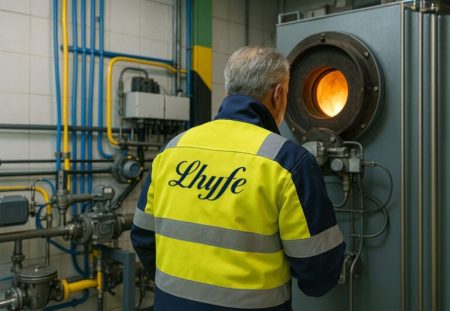Enagás’ hydrogen subsidiary, Scale Green Energy, has secured over €8 million in EU funding to deploy six large-scale renewable hydrogen refuelling stations across Spain—each with a daily capacity of 1,000 kg.
Browsing: Europe
The European hydrogen economy has gained a critical production foothold as Agfa and VITO inaugurate a large-scale manufacturing facility for ZIRFON membranes in Mortsel, Flanders.
In one of the most consequential decarbonization moves by a European steelmaker, Tata Steel is preparing to shut down key coal-based assets at its IJmuiden plant in the Netherlands and replace them with low-emission technologies.
Spain’s Moeve is preparing to enter the sustainable aviation fuel (SAF) market through a new partnership with Zaffra, a Sasol-Topsoe joint venture, as part of its push to develop a 2GW green hydrogen hub in Andalusia.
Black & Veatch has completed the front-end engineering design (FEED) for the Whitelee Green Hydrogen Project.
As BP begins the search for offtakers for its 100MW green hydrogen project at the Lingen refinery in Germany, the company appears to be recalibrating its low-carbon strategy—consolidating investments in continental Europe while pulling back from high-profile UK ventures.
VERBUND has selected Fluence Energy GmbH to deliver over 92 MW of battery-based energy storage systems, bolstering both grid reliability and market responsiveness.
Masdar and EnBW Energie Baden-Württemberg AG have signed a Memorandum of Understanding (MoU) to co-develop offshore wind and battery energy storage systems across Germany and the UK.
With ambitions to deepen energy ties and align decarbonization strategies, the European Union has committed €3 million to a technical assistance project designed to fast-track Türkiye’s entry into the green and low-carbon hydrogen economy.
Lhyfe, a France-based green hydrogen producer, has successfully conducted combustion tests using 100% renewable hydrogen in the ceramics sector of Spain’s Valencia region—signaling a potentially scalable pathway to decarbonize one of the country’s most energy-intensive industries.











